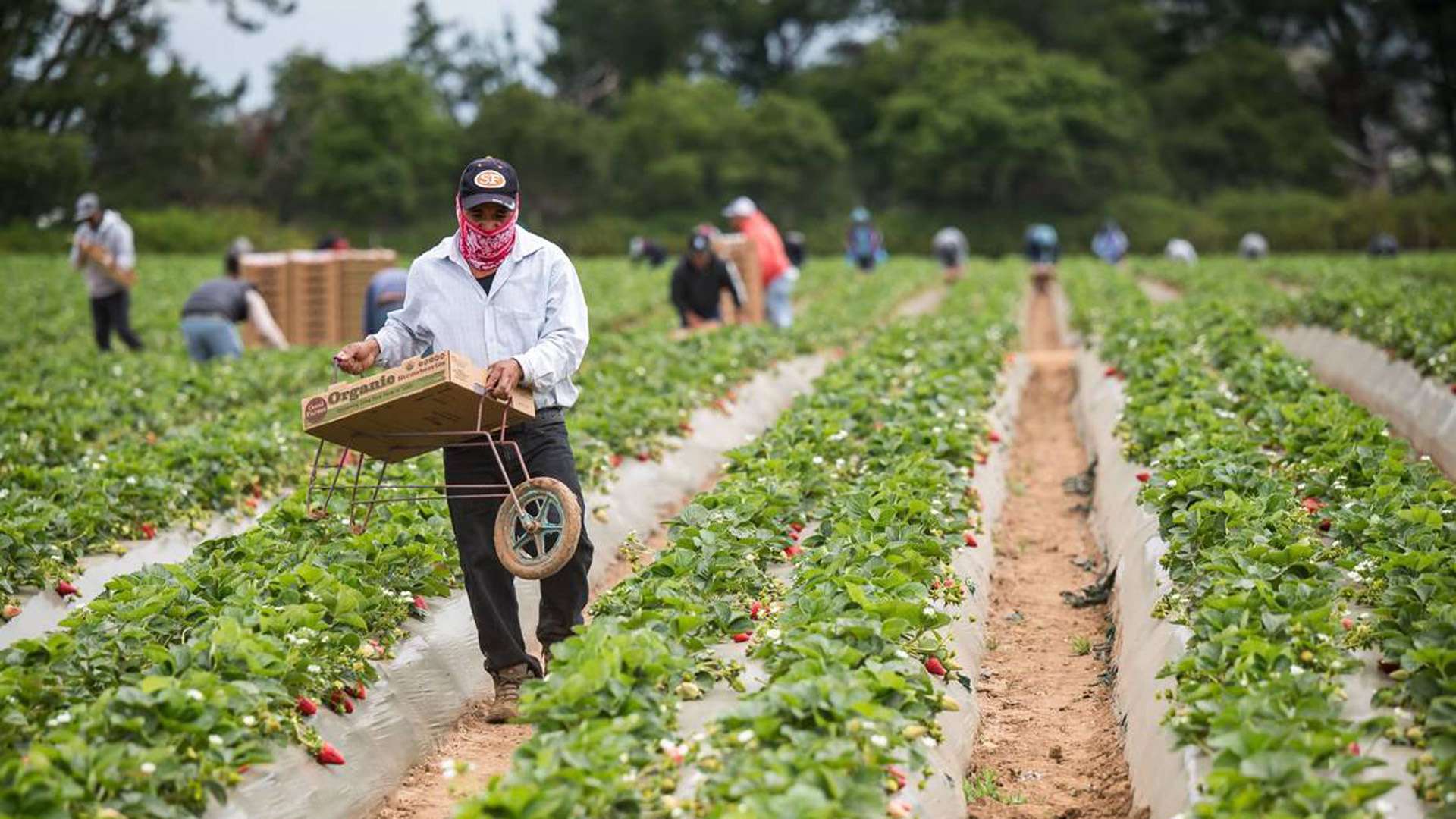The Impact of Mass Deportation on America’s Food Supply Chain
Grocery prices, while stabilizing in their rate of increase, remain a significant concern for voters, as highlighted by the recent elections where 96 percent of surveyed individuals acknowledged that high costs of essentials like groceries and gas influenced their voting behavior. However, the implementation of President-elect Donald Trump’s immigration policy, particularly the plan to deport millions of undocumented immigrants, poses a serious threat to the United States’ food supply chain. A considerable portion of farm and food production, notably those undocumented laborers currently contributing to agriculture, would be disrupted by such a mass deportation policy, potentially leading to increased grocery costs and exacerbating existing inflationary pressures.
The agricultural sector relies heavily on immigrant labor, with statistics indicating that 28 percent of agricultural workers, 25 percent of food production workers, and significant proportions of grocery wholesalers are foreign-born. The importance of immigrants in maintaining the workforce is underscored by the findings from the Migration Policy Institute, which noted that while immigrants comprise 17 percent of the overall civilian workforce, their representation in sectors related to food production is considerably higher, including 31 percent of crop production workers. Furthermore, undocumented immigrants, despite representing only 5 percent of the total U.S. labor force, account for 15 percent and 12 percent of food production and processing workers, respectively. Given these statistics, the deportation of undocumented laborers could compound existing labor shortages, thus threatening harvesting and production capabilities essential for sustaining the food supply chain.
The economic impact of mass deportation could be profound, as highlighted by the Peterson Institute for International Economics, which projected that agriculture could face the most severe inflation among various sectors, estimating that up to 16 percent of the workforce in agriculture could be removed under such a policy. This decrease in labor supply likely would lead to increased prices for consumers, particularly in grocery stores, as the available workforce becomes insufficient to meet the demands of production and distribution. Historical evidence suggests that native-born workers have largely been unwilling to fill these difficult and repetitive roles, with the Department of Labor’s attempts to raise H-2A program wages failing to attract sufficient applicants among U.S. citizens.
The challenges surrounding the agricultural labor supply indicate that existing legal pathways for foreign workers have proven inadequate in addressing the sector’s needs. Legislative proposals such as the Farm Workforce Modernization Act seek to amend the current H-2A program by introducing more flexible visa mechanisms, creating legal pathways for foreign workers who have consistent employment in agriculture, and allowing the visa cap to adjust in response to market needs. This bill has gained traction in Congress, passing the House on two occasions, reflecting the recognized need for reform in labor immigration to ensure a stable workforce in the critical food supply industry.
The broader implications of mass deportation extend beyond the lives of undocumented immigrants; families, communities, and consumers would all experience the ripple effects of such policies. If significant numbers of agricultural and food production workers are removed from their roles, the ensuing labor crisis could destabilize food prices and availability. Thus, the emphasis is placed on the urgent necessity to develop and enhance visa pathways for the workforce that supports America’s food supply chain, ensuring that the system operates efficiently and reduces instances of unauthorized labor that can exacerbate economic disparities.
In conclusion, the intersection of grocery prices, immigration policy, and agricultural labor is crucial for understanding the future of food supply in the United States. As consumers feel the pinch of rising prices, the potential consequences of policies aimed at mass deportation highlight the urgent need for reform. Without the contributions of immigrant workers, particularly undocumented individuals who currently fill critical roles in food production and processing, the food supply chain may encounter significant challenges, impacting not only availability and costs but also the stability of communities reliant on this workforce. The situation warrants immediate attention to create pathways that support both economic stability and fair treatment for workers, ensuring that the agricultural sector can meet the demands placed upon it while also providing fair labor opportunities to immigrants.
Share this content:












Post Comment